We’d been encouraged to stop
in Sopron, just an hour SE of Vienna, for a couple of days, by
Liz, a former professor at the University of Denver
whom I had met through the Hungarian Trip Advisor forum. She’s an absolute
treasure trove of information about all things Hungarian and was a wonderful
resource when planning this part of our trip. I don’t know what we’d have done
without her as she knew all the bus routes, their stops and what to see and do
in Sopron and then onwards in Pecs and Budapest. Thanks, Liz,
once again for all your countless hours of assistance!
At Liz's suggestion, we came to Sopron just to hang out in the Hotel Lover (pronounced Loover, I'll have you know!), so we could be pampered for 2 nights after about a third of our way through the trip.

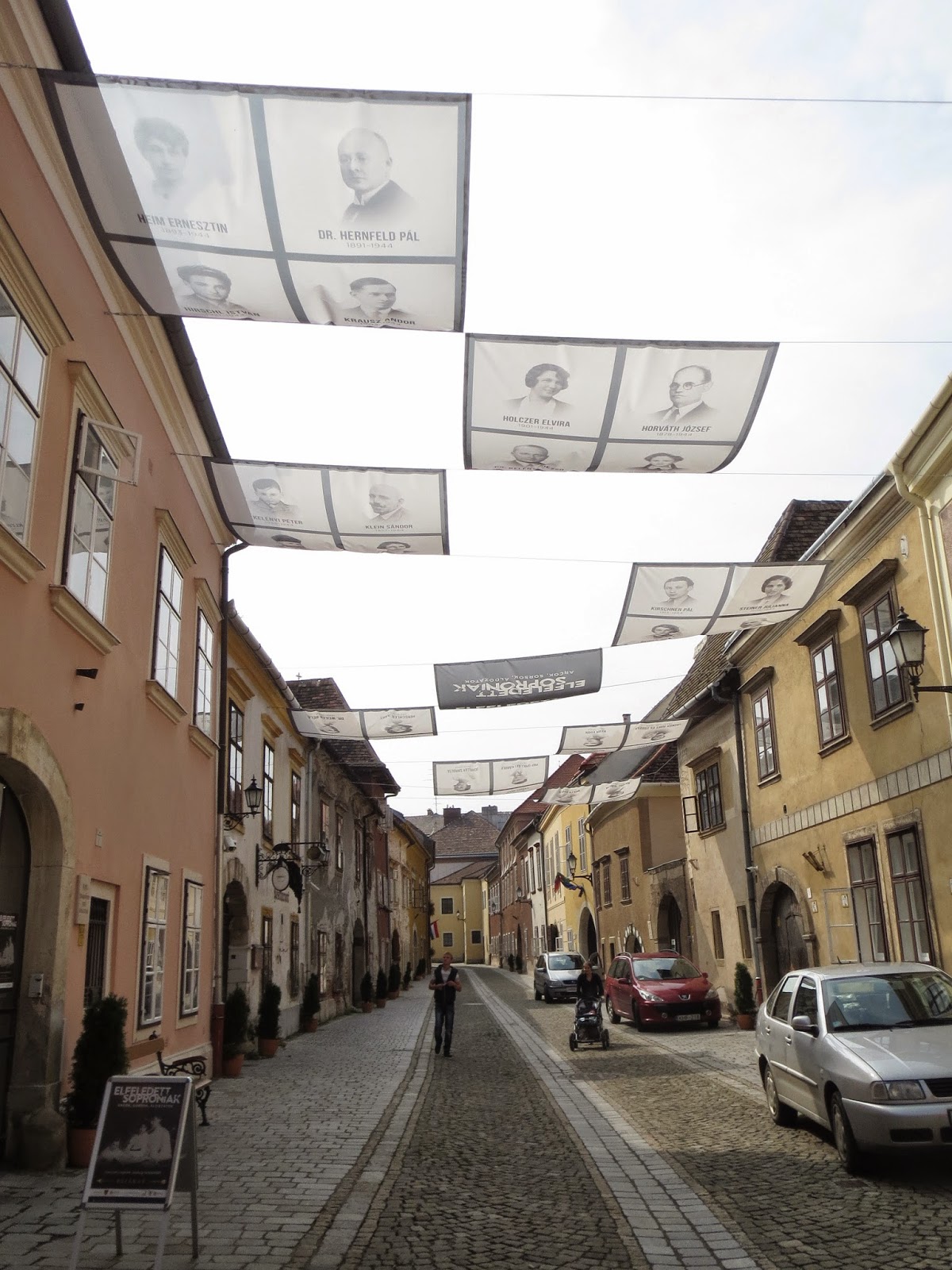


Sopron is called Hungary’s ‘most faithful city,’ a reference to the 1921
referendum when it opted to stay as part of Hungary rather than be absorbed into Austria; it's so close to Vienna, that Sopron is almost considered to be a suburb! We took a very local train, the Raaberbahn, that seemed to stop at every hamlet along the way. Liz did indeed steer us in the right direction with the hotel as we were able to check in before noon and the staff was extremely accommodating. How wonderful staying in a HOTEL after being in hostels the entire trip - I could get used to it quite easily, believe me, but Steven, not so much!
 |
| My own bathrobe nonetheless! |
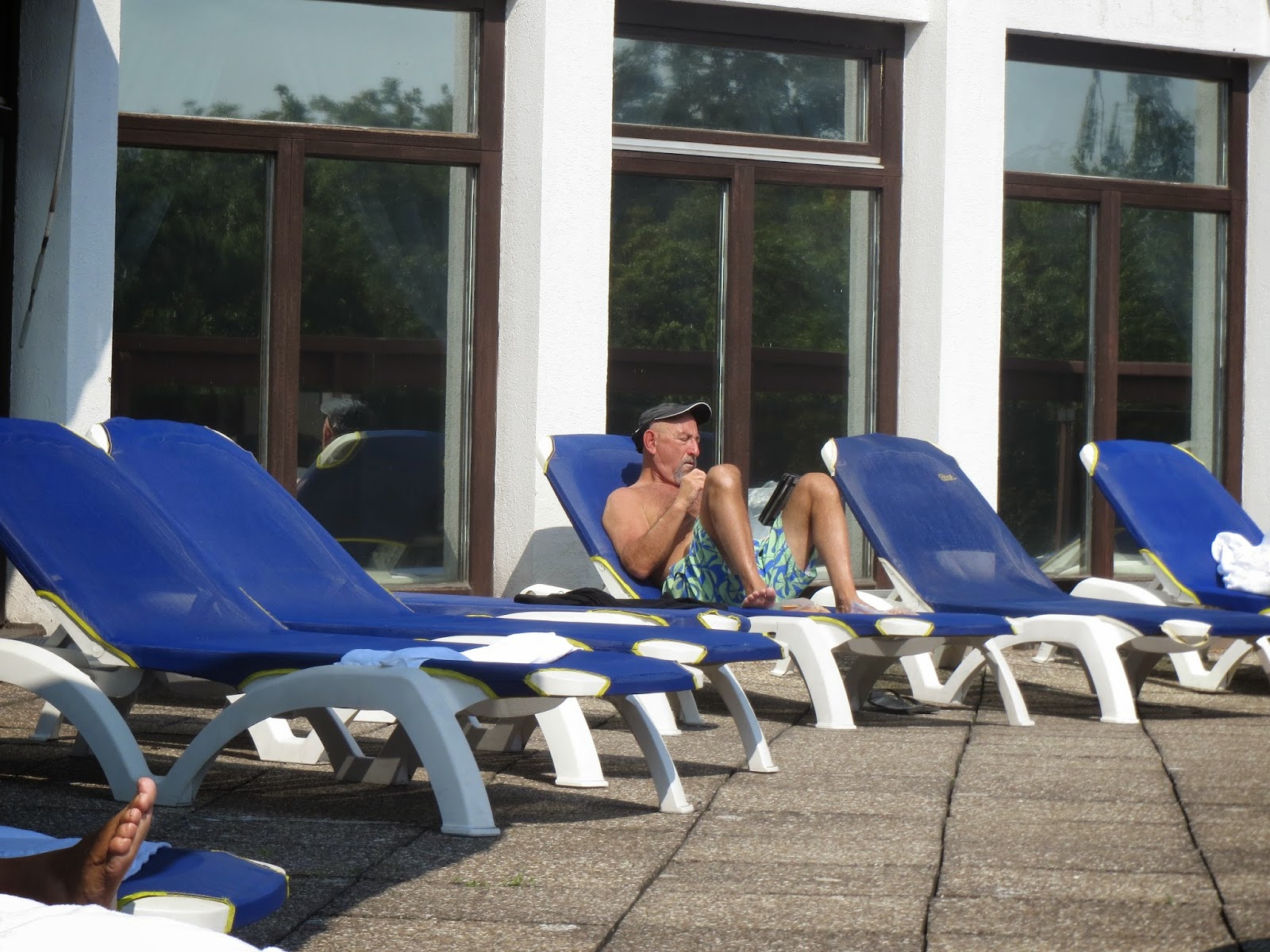 |
| Steven loved being out on the sundeck for an hour or so before, true to form, it began raining cats and dogs; oh well, he then just went downstairs to enjoy the sauna. |
 |
| I actually 'dressed' for dinner that, like breakfast, was included in the $70 a night price! |
 |
| Natalie,Adam and Suellen: for you of course! The food was good and filling but not exactly an epicurean's dream. |
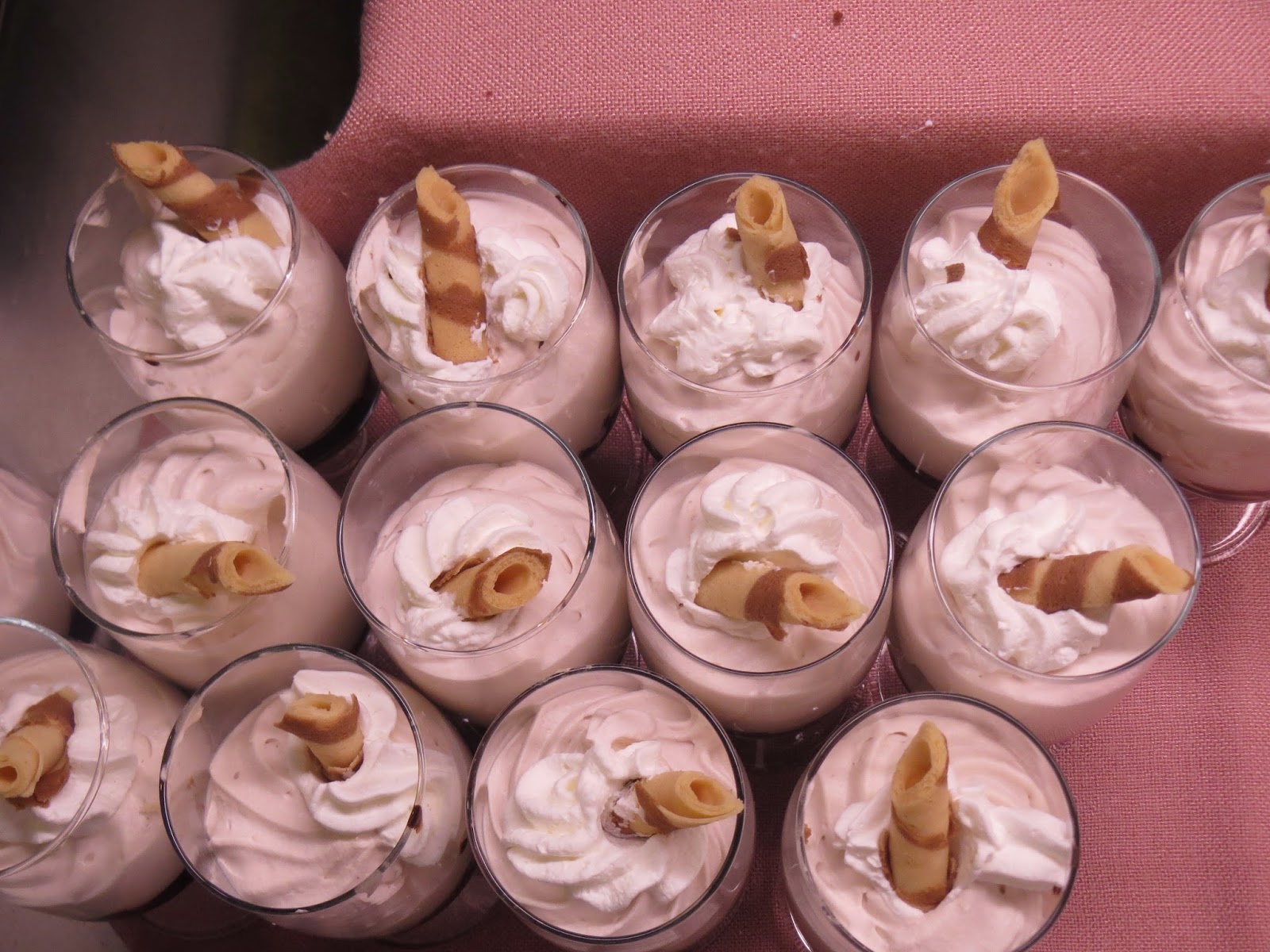 |
| Steven was in love with the desserts; normally he doesn't touch them with a 10 ft pole becasue he's severely allergic to all nuts but no problems here. |
After getting a bus into town the next morning, we walked around town for a few hours because we wanted to see a few of the sights I'd found out about.
 |
| 1st time we've seen one like this |
 |
| Think the seat needs some extra padding! |
 |
| At a lovely square in town. |
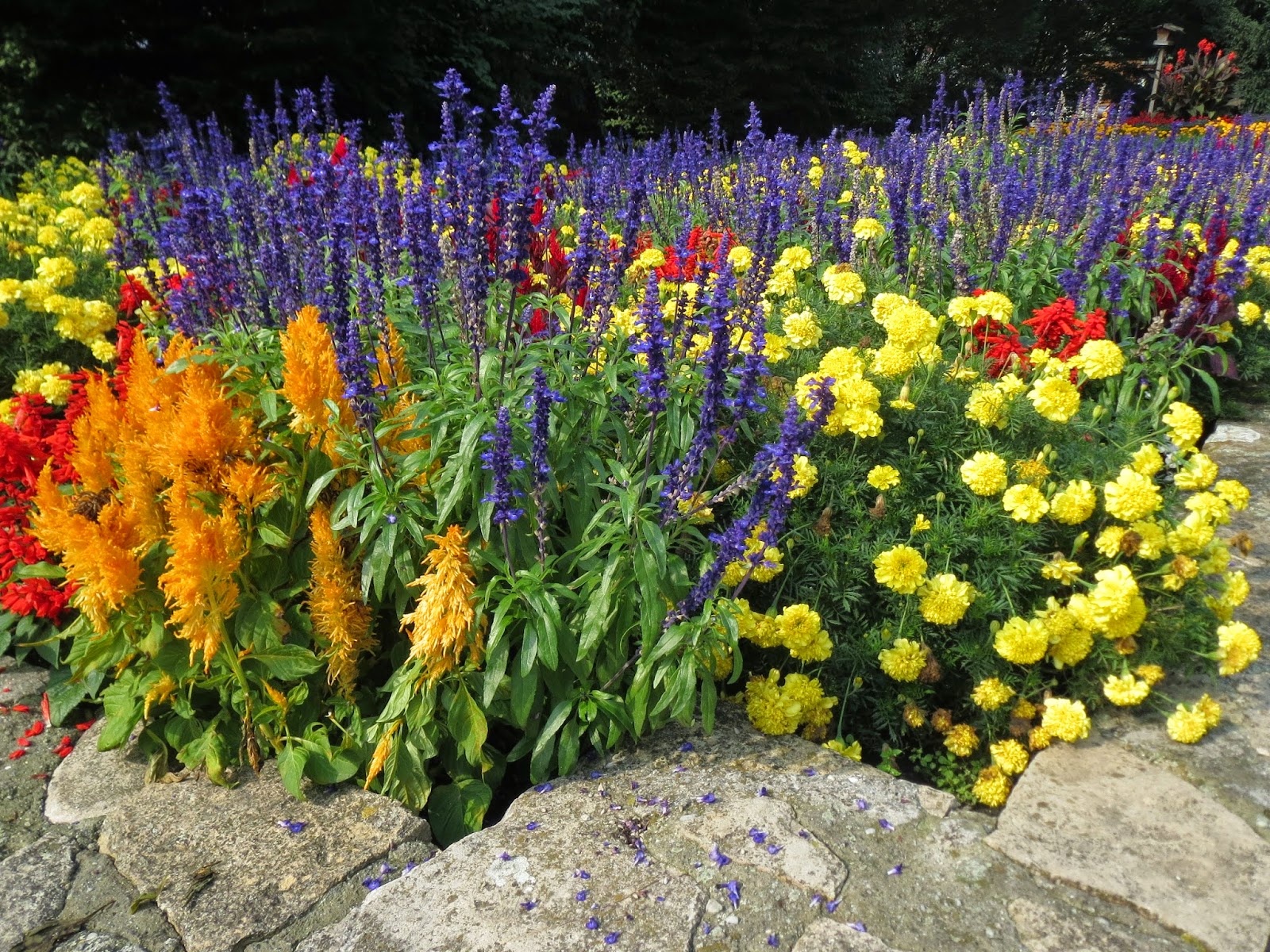 |
| I'm guessing the flowers are doing so well from all the rain they've been getting. We've seen a lot of flooded areas as we've traveled east across Europe. |
 |
| Virtually all the street signs were in both Hungarian and German. |
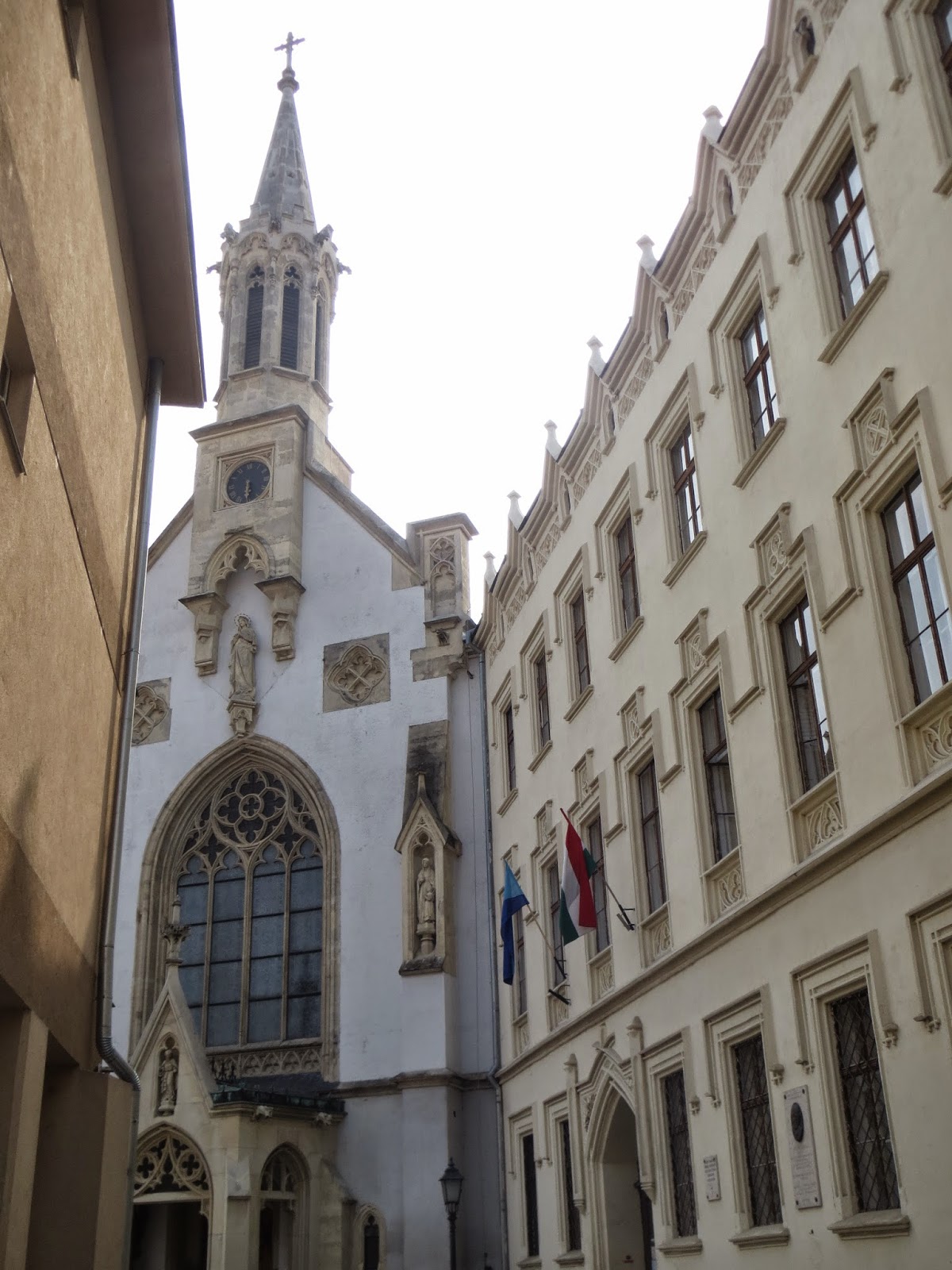 |
| Saw the church's spire rising from afar and walked toward it; found out it was an Ursuline Convent with a school attached. |
 |
| 'The Church Named After the Immaculate Conception.' |
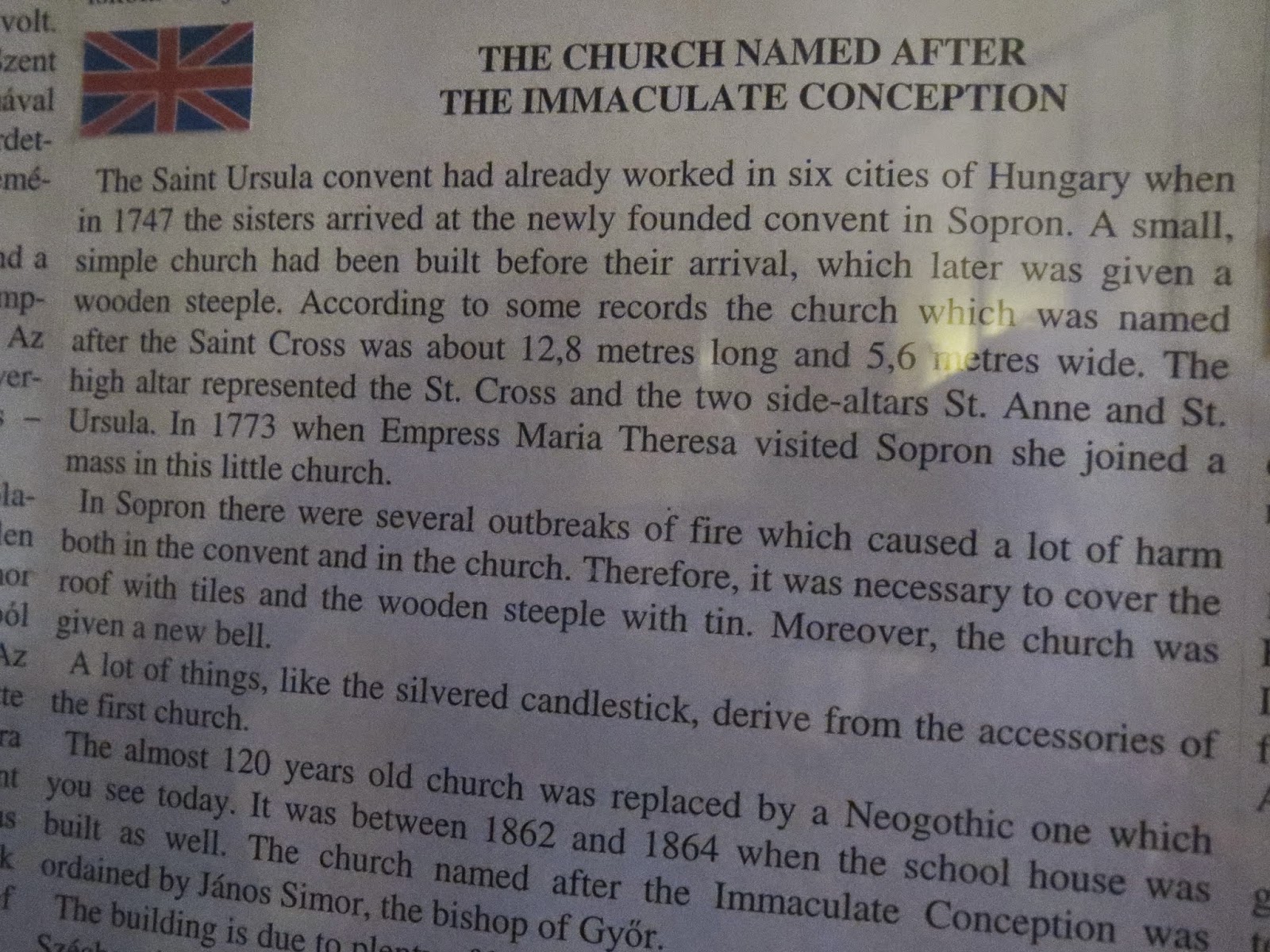
 |
|

 |
Ter means square in Hungarian; thus the previous photo is of Ursuline Sq.
After leaving the church, we walked down one of the streets off Ursuline Sq., and happened on the Medieval Synagogue, 3 minutes later, only after noticing the 'banners.' No one knows the exact date Jews settled in Sopron but it is sure that 10-16 families lived in New St. (Uj Utca) as early as the 13th C; the synagogue was built in the 14th C. The
Jewish religion says there is only 1 church where God is truly present, the Church of Jerusalem. Therefore, the synagogue is a house of prayers, a
place for congregations and a school.
Outside the synagogue/museum, we were particularly moved and affected by a large number of white, horizontal ‘banners’ high above the street, each with its own head and shoulders photo, name and dates of birth and death. They could only have represented Jews, perhaps from Sopron, who died at the hands of the Nazis.
The 2 focal points of the
synagogue were the Aaron alcove and the hexagonal pulpit.
 |
| The pulpit |

Women had their own house of prayers, which was equipped with its own exit. They could follow the events in the main hall only through narrow slits in the windows.
The narrow slits in the women's prayer room.
Near the synagogue, there used to be a hospital providing accommodation for wanderers and a ritual bath, called a Bima, which we were able to see. The Jewish religion has always differentiated between
clean and dirty things, so baths have always played an important role in the
spiritual life of the Jews.
|
 |
| The entrance to the 'Bima' or ritual bath. |
 |
| Back on the street again outside the synagogue. |
We didn’t think we’d spend more than a short while at the synagogue but upon being given a 5 or 6 page incredibly detailed, well written English handout about each of the synagogue’s rooms, we are so glad we decided to stay put and visit it in more depth.
Having visited a lot of small
and big cities already this trip, we were especially struck by the incredibly
helpful information, brochures and map given us by Sopron’s tourist information (TI) staff. Conversely, we were
flabbergasted at Salzburg’s TI policy of not providing any free, tourist brochures
at all; their focus was selling tickets to various concerts, venues, etc. Many
moons ago, I used to work for Ottawa’s TI so I’m always conscious of the role TI provides
tourists. Sorry for my rant.
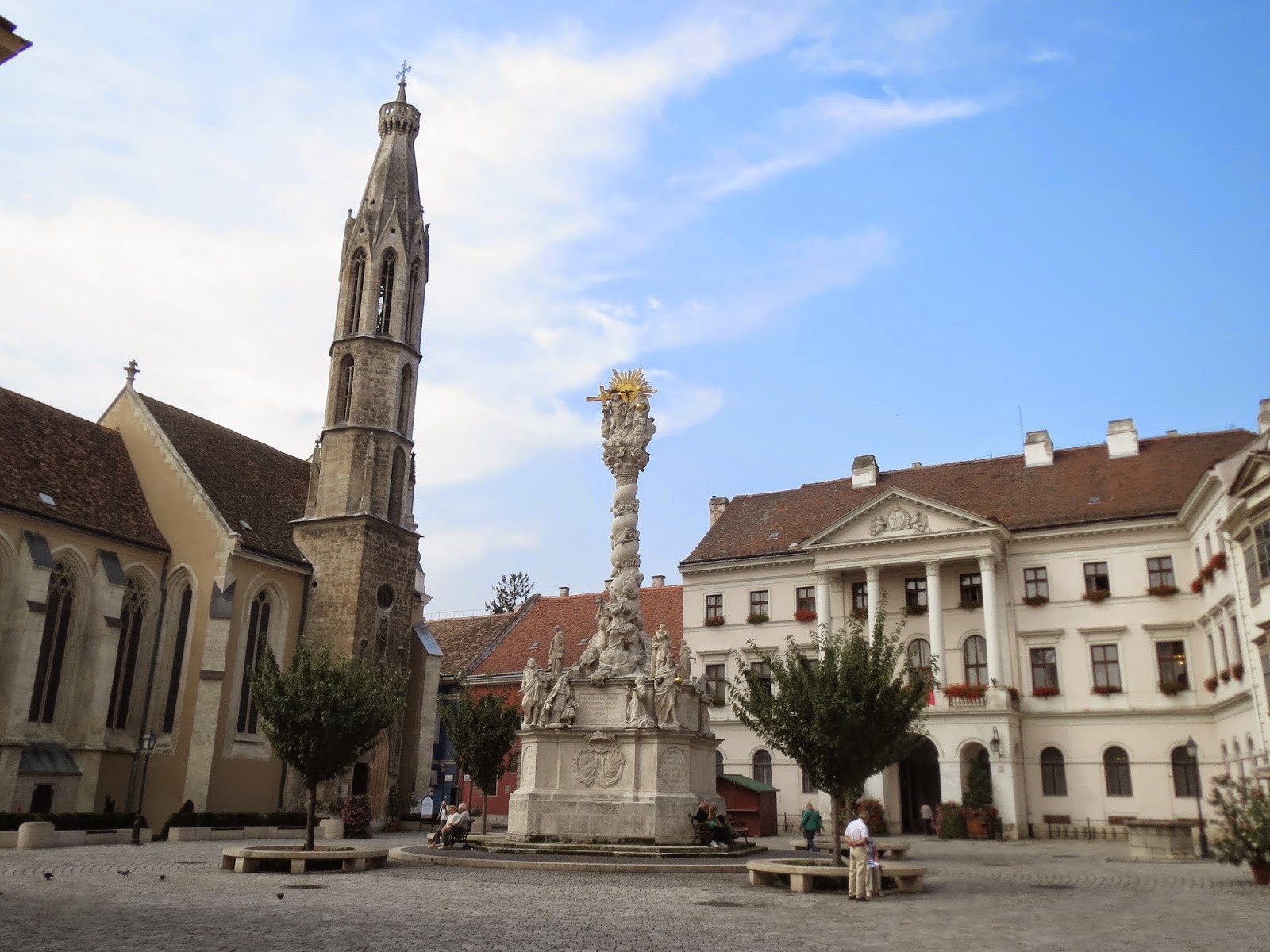 |
Fo Ter, the main square in Sopron.
 |
The 60m Firewatch Tower, from
which trumpeters would warn of fire, mark the hour and watch for salespeople
trying to bring in non-Sopron wine, is the symbol of the city; its cylindrical
lower part was built on the remains of the Roman town wall; it acquired its
present form with its Baroque balcony after Sopron’s great fire in 1676.
 |
| Town Hall |
 |
I felt like SUCH a fool when I was peering in through these doors trying to figure out what the building was and they all of a sudden opened up automatically in front of me; of course I didn't know til a minute later that it was the Town Hall.
|
The Blessed Mary Church
aka The Goat Church: The
Franciscans living in Sopron built their monastery in the center of town in what
is currently the south side of the main square. Around 1280, they built both a
church and a monastery simultaneously. During the construction, the sanctuary
and the walls of the nave were built first; that was followed by the completion
of the spire and the nave was finally vaulted around 1380-1410. The costs of
the last phase were covered by the Gaissel family, whose coat of arms features
a goat. The legend though around the ‘Goat Church’ is much more appealing: the church was built thanks
to the treasure unearthed by a goat; thus the stone goat being cuddled by an
angel on a pillar. I must say I expected a bit 'more' after reading about the church but darn good marketing,I'll say.
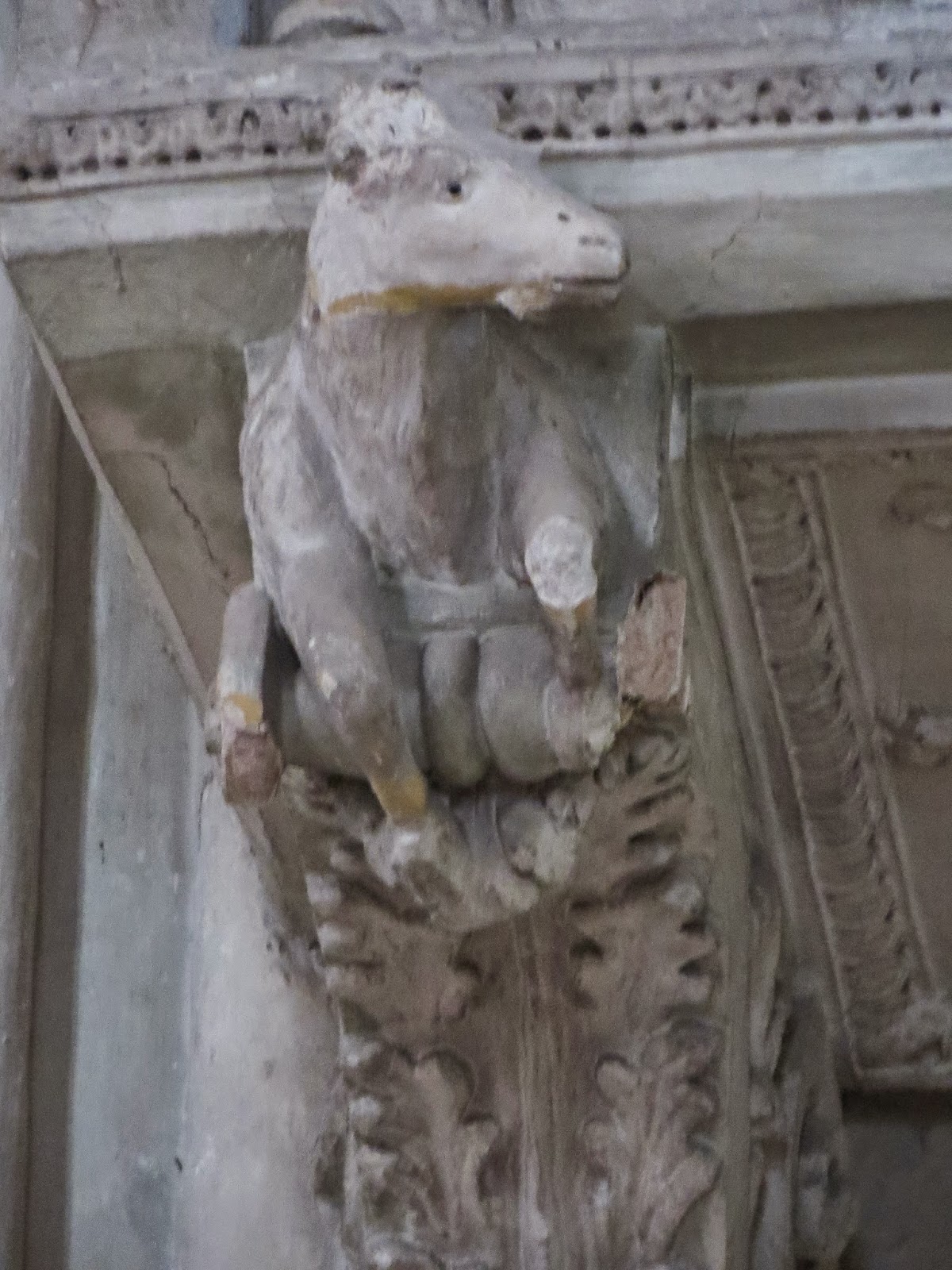 |
| Finally, the GOAT! |
 |
| Just a street scene I liked. |
 |
| These rolls cost all of .6 each! The exchange rate is about 250 Hungarian forints to the $. |
 |
| The numbers had changed a bit by the time we got the bus at 1:30 back up the very long and steep hill back to the hotel. |
Met a lovely older couple
from Great Britain (they looked way older than we are but may have been our
ages or even younger as it’s hard to tell people of a ‘certain age’ any more!)
in the Sopron P.O. while we were both waiting to buy stamps; they
had visited the US 13 times if you can believe it including 43 of the
states (even Alaska and Hawaii) and had been to ‘our’ Four Corners area twice.
For once, I wish the line had been longer so we could have exchanged more
travel stories.










































Well hello to you both. All the things you guys get to see together will last a life time
ReplyDeletefor you. Thank you for my post card. It was wonderful, felt like a special treat for me.
I can't believe all the work you put into getting everything together. I miss you both. Take care, Love Becky